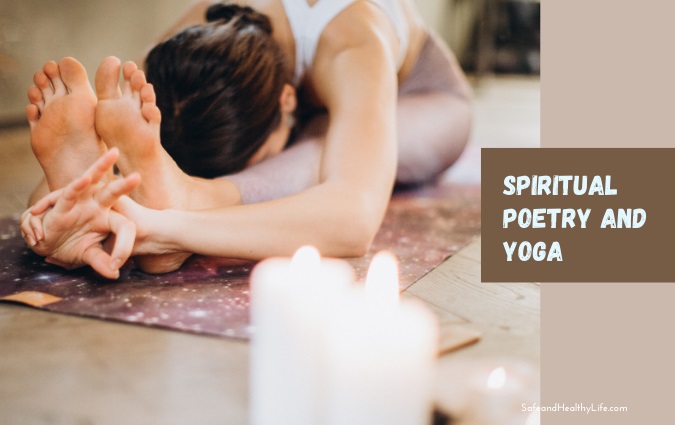
Poems about spirituality play an essential part in Kriya Yoga. They are ways to inspire the spirit and connect with the Divine, and many teachers such as Paramahansa Yogananda were also great poets.
Spiritual poems are more than a type of poetry that focuses on religious or spiritual topics. The practice comes with many different traditions, but their goal is to grab a piece of spiritual meaning that extends far beyond the words written on a piece of paper.
The Role of Spiritual Poetry
Spiritual poetry is not just a piece of writing about spiritual topics. It can be used as a gateway for the reader or listener to connect with their spiritual side in the true sense of the word.
For a non-spiritual reader, spiritual poems may not offer such a different experience than regular poetry. They can appreciate the themes of the poem, the concept it utilizes, and even the imagery it tries to depict, but seeing spiritual poetry this way only leverages part of the true potential of these pieces of writing.
Spiritual poems are, by themselves, a spiritual experience, even outside the yoga practice. They provide the chance for the reader and writer to reflect on the Divine world, be inspired by it, and find the motivation to offer that inspiration in the form of a spiritual poem.
Spiritual Poetry’s Role in Yoga
Spiritual poetry in Kriya Yoga is looked at as an expression of the divine, and the reality the divine creates. These writings often contain the core truths of the world, in a manner that can be easier to understand and expressed, ensuring that the teachings of the practice can reach the individual.
Spiritual poetry, therefore, has an incredibly difficult task to achieve, and poets who pen down these truths are usually teachers who come with a deeper understanding of the practice.
Spiritual poets often need to bring themselves closer to the divine reality in order to write the poems. If anyone can write poems about spirituality, true spiritual poetry is much more difficult to achieve, but this doesn’t mean the practice itself is only meant for the enlightened.
The Benefits of Writing Spiritual Poetry
All people are a reflection of the Divine and are born with the ability to connect with the Divine world. This makes everyone able to draw inspiration from religious poetry, but also try to convey spiritual messages through writing.
Spiritual poetry in yoga is not just something meant to be consumed. The process of creating it can also be quite beneficial, even if the writer doesn’t consider themselves talented or enlightened enough to pen down words about the divine.
The act of writing about the divine is a way to bring the person closer to the divine world. It involves centering oneself and thinking about this part of the self, which in conjunction with other spiritual practices can help the person have a better, more fulfilling experience in increasing their spirituality.
When writing spiritual poems, the writer is moving beyond the words themselves. They are conveying a deeper message and meaning which comes directly from the Divine.
These poems can be used by the writer themselves as guidance and support, as they assist the practitioner in understanding how their spiritual side unfolds.
Finding the Right Words for Spiritual Poetry
A spiritual poem is, by definition, an honest text, less concerned about the rules of poetry, and more focused on faithfully representing the Divine word through the words.
In a sense, there is no “right” or “wrong” way to write spiritual poetry as long as the writer channels their spiritual side and writes from the heart.
Even the classic “writer’s block” can be quite telling during this experience.
Why, at a certain point during the process, does the writer stumble informing the imagery of the Divine?
Is there a gap in their personal connection with the Divine which does not yet allow them to form the phrases of the poem?
This can bring the writer closer to their true self and even their faith, as they are made to reflect on these issues perhaps even for the first time.
Spiritual poetry in yoga carries an amazing meaning, and one could argue that without such poems, many yoga practices can lose a piece of the divine world.
These poems are meant to inspire and to make the reader and writer reflect on their true self, their relationship with the Divine, and their spirituality.
It’s a practice that makes the entire learning journey a lot more meaningful, and able to carry the reader or writer forward on their path to reach abundance, growth, and even enlightenment.
About The Author:
Jane Gilman-Stewart is a freelance writer specializing in health and wellness. She has been a practitioner of Kriya Yoga for almost a decade now, and she aims to promote mindfulness and spiritually conscious living through writing. For more information about Kriya Yoga, you may visit www.ellengraceobrian.com.




![[Infographic] Yoga For Kids Infographic](https://www.safeandhealthylife.com/wp-content/uploads/2017/03/Infographic.png)